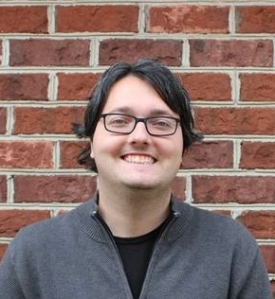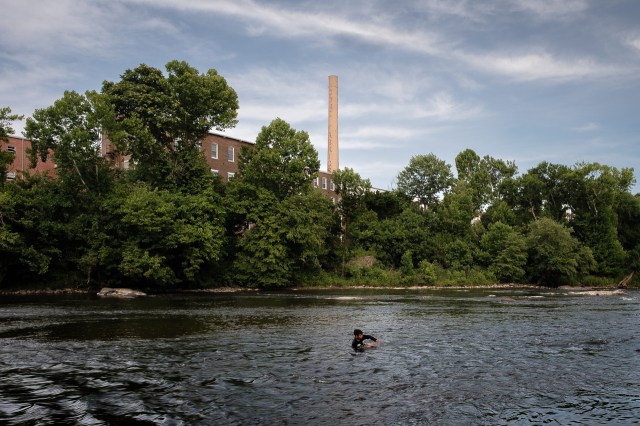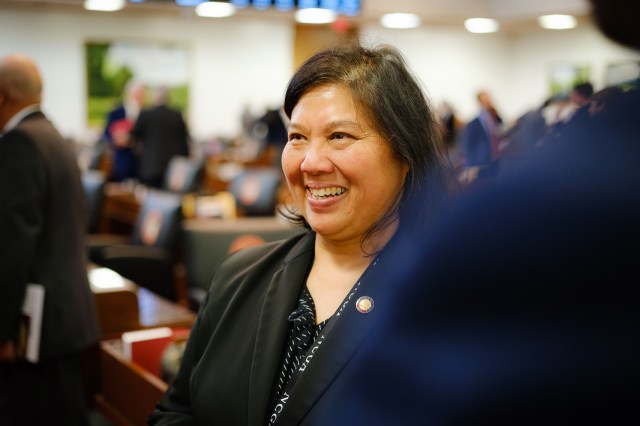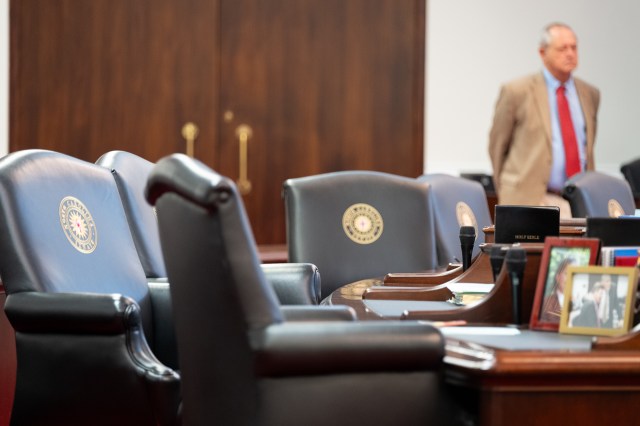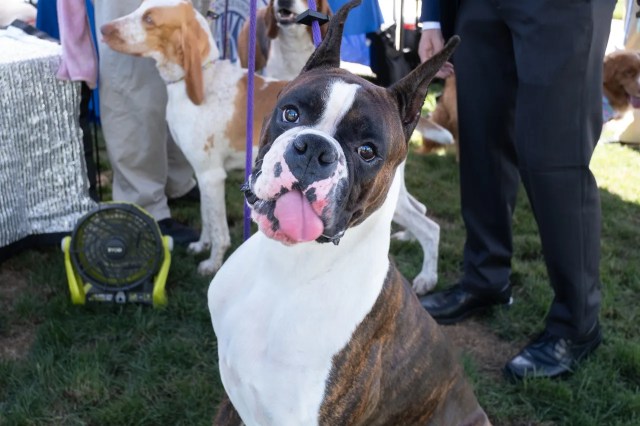Stay ahead of the curve as a political insider with deep policy analysis, daily briefings and policy-shaping tools.
Request a DemoFormer NC politicians give advice, warn of partisanship to IOPL graduating class
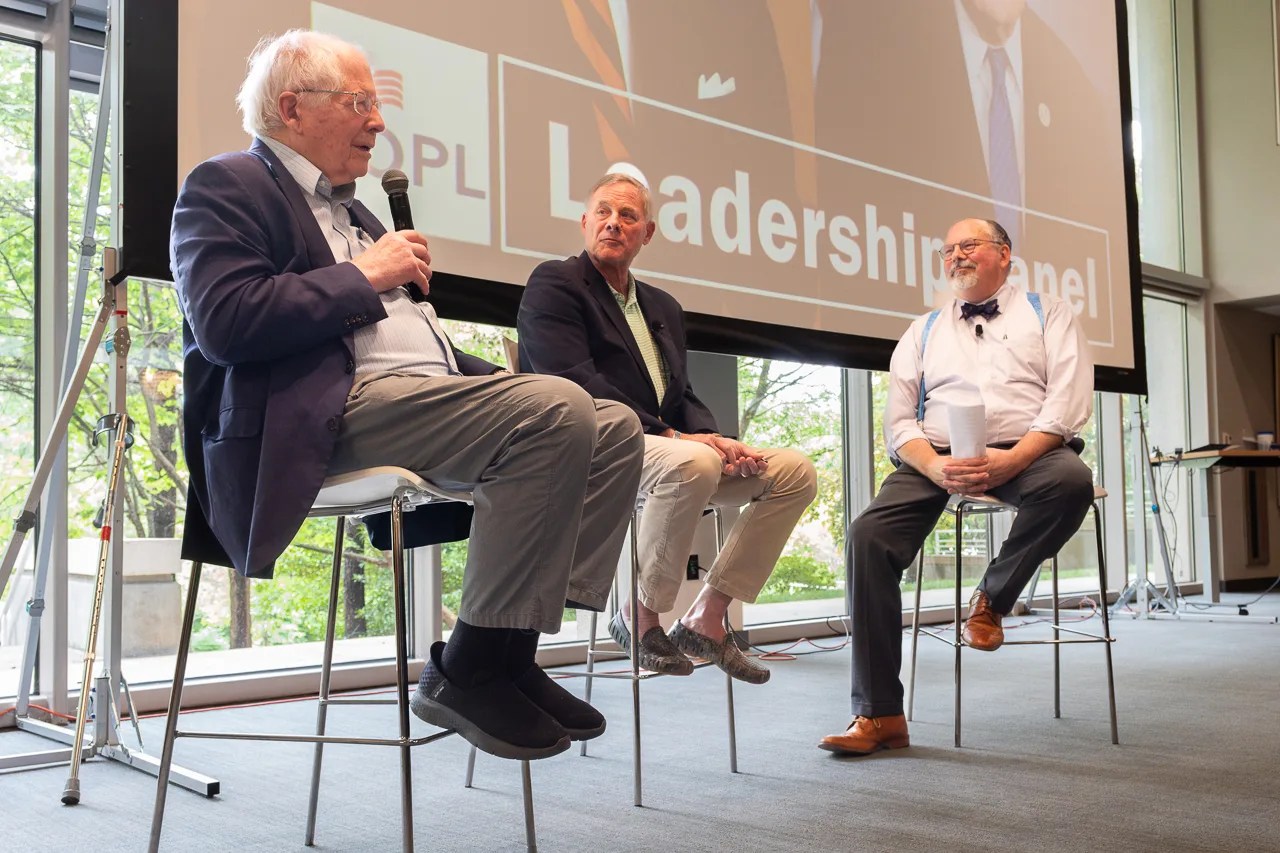
Former U.S. Rep. David Price and former U.S. Sen. Richard Burr discuss the divisive nature of current politics at a graduation event for the NC Institute of Political Leadership on May 18, 2024. The discussion was hosted on the campus of Duke University by IOPL board member Joe Stewart. (Credit: Clifton Dowell)
- Former NC politicians Richard Burr and David Price reflected on their careers and advised future leaders at the IOPL graduation at Duke University.
- Burr highlighted the impact of social media on politics and emphasized fact-checking in the digital age.
- Price stressed the importance of institutional integrity and bipartisan cooperation in modern politics.
Former North Carolina politicians Richard Burr and David Price detailed their political careers and gave advice to future leaders and policy shapers Saturday afternoon at Duke University.
The Spring 2024 Fellows Graduation of the N.C. Institute of Political Leadership (IOPL) served as the backdrop to the panel.
Burr, a Republican U.S. senator from 2005 to 2023, and Price, a Democratic U.S. representative from 1987 to 1995 and 1997 to 2023, acknowledged that the world of politics with which the 16 fellows will engage is different from the politics of Burr’s and Price’s eras.
“Washington has changed. And people often ask me, ‘How does it go back to the way it was?’ ” Burr said. “Social media and TV have not been kind to the political process. Whether you’re a youth, adolescent, adult, you need to understand social media. Social media is not a tool of facts. Everything that you research has to be fact-checked. …. Now we’re headed into a period of time where every video you see and every audio you hear you will have to verify that it was actually human.”
Burr encouraged the audience to embrace the opportunity to lead with the technological developments shaping the political landscape rather than shy away from the challenge.
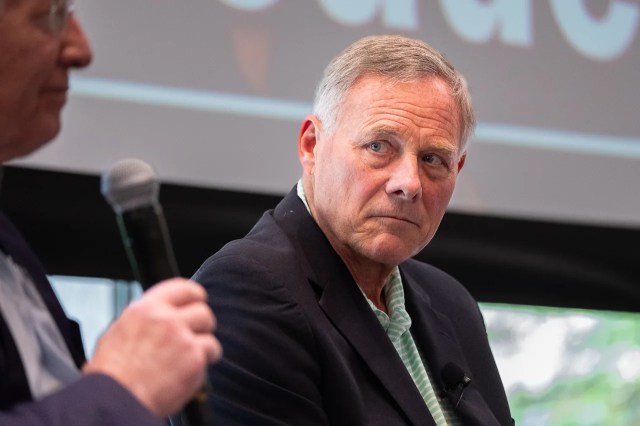
“Politics has also always been a contact sport,” Burr continued. “When elections were over, David and I put the gloves into the drawer. We didn’t bring them out until election time came. Today, the gloves stay out. It’s hard to find consensus when it’s a perpetual fight.”
Moderator Joe Stewart, a member of the IOPL board of directors, asked Price: “Congressman, you were famous for working across the aisle, forming bipartisan coalitions on important issues. What’s the trick to doing that?”
“It doesn’t always work these days,” Price said, drawing a chuckle from the audience. The budget process has become “rugged” from the partisanship, making any textbook from his era unrecognizable, according to Price. Later in his career, he considered it a success to stitch together various appropriations bills and get the legislation passed three months late due to the political infighting.
Consensus building is one of the key lessons the IOPL fellows engaged with during their three-month journey. It remains one of the toughest aspects of being an elected official, according to the panel.
“Imagine that you go to class,” Burr said, outlining how the U.S. Senate works. “A professor every day has to say to the class, and ask by unanimous consent, that we actually do something today. And one student says, ‘Nahhh, I don’t think so.’ That’s the United States Senate. We’re taught that the rules are 60 votes to get something done. No, the rule is nobody objects.”
It’s this sort of performance politics Price warned is derailing our democracy.
“[Elected officials] are institutional citizens,” Price said. “They are members of an institution that absolutely is central to this democracy. And if you mess around and take [15 ballots to elect Kevin McCarthy as speaker of the House in 2023] that is wrong. Democrats, we have our own problems. Both parties are subject to this. I think it’s an American vulnerability, that we kind of lack an institutional sense.”
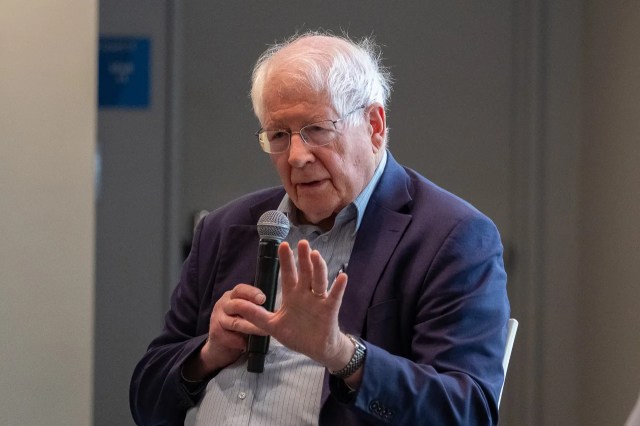
Price encouraged the IOPL graduating class to think of themselves as part of something greater than the sum of its parts and reminded them of the obligations they have to be educated on the issues important to their constituents.
“It’s one thing to win an election,” Price said. “It’s quite another thing to make institutions work. That’s the real test of democracy. That’s when you either translate people’s hopes and fears, values and interests into public policy or you do not.”
The final question to the panel asked what it takes to remain grounded in public life.
“If you’re not as concerned with your neighbors’ children as you are with your own children, you will wake up in a community you don’t recognize,” Burr said, paraphrasing a message shared by the Rev. Dr. Martin Luther King, Jr. in a sermon before his assassination. “Close your eyes and think about the community that you grew up in and ask yourself, ‘Does it reflect the same community today?’ If the answer is no, then we didn’t do the job that Dr. King suggested we do.”
Burr said the example set by our parents, community members and elected officials is not something passed in our DNA but serves as a guidepost to be followed by future generations.
“If we all do that, you will find your niche,” Burr said to the IOPL fellows. “It may be in elected office; it may be in community service in a nonprofit. … Every community in America needs every one of us to do that.”
For questions or comments, or to pass along story ideas, please write to Matthew Sasser at [email protected] or contact the NC Insider at [email protected] or @StateAffairsNC
Know the most important news affecting North-carolina
Get our free weekly newsletter that covers government, policy and politics that impact your everyday life—in 5 minutes or less.
Global ‘Rights of Nature’ movement touches down in NC
Two bills introducing a novel legal concept have landed with a thud in the House Rules Committee, but supporters believe the idea might someday provide a better foundation for environmental law in the United States. House Bills 795 and 923 fall within a larger international movement known as Rights of Nature and would essentially give the Haw and Dan …
Mending the divide: Institute shapes future North Carolina leaders
A Confederate monument in Alamance County was dividing the community in half, sparking a war of words and strong emotions over the question of whether the statue was preserving history or honoring hate. At the time, Amy Galey, chair of the Alamance County Commission, called up an old friend for advice, hoping he might help …
Insider Afternoon Update for June 6, 2024
The conference report on the so-called “mask ban bill” sailed through the Senate without opposition Thursday, but only because every Democrat was absent from the chamber when the vote took place. The conference report adds an exemption for people who need to wear masks for medical reasons, but also makes a change to campaign financing law that …
AKC visits NC legislature with dogs, treats
When it comes to lobbying, likability never hurts, so some groups have a natural advantage. “I don’t think I have ever met an anti-dog legislator,” said Sheila Goffe, vice president, government relations, at the American Kennel Club. The group was set up on Halifax Mall Wednesday with baskets of treats — both canine and human — …
